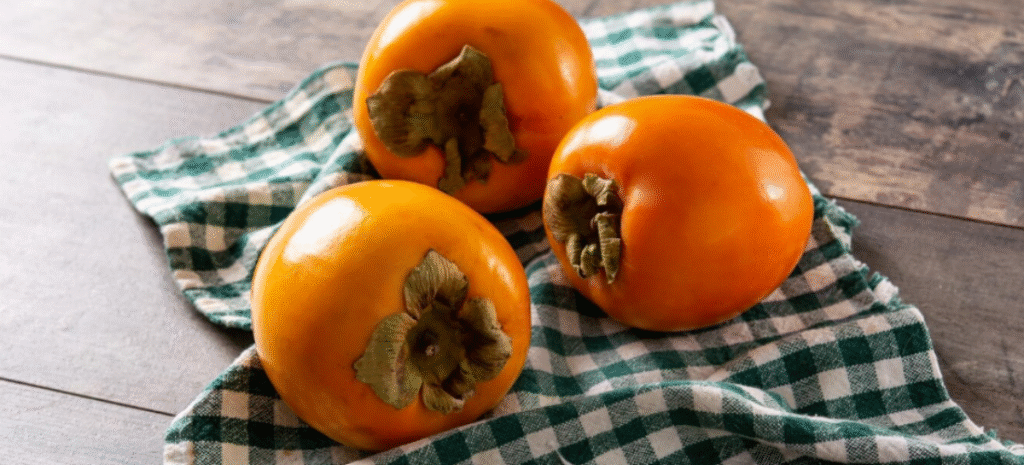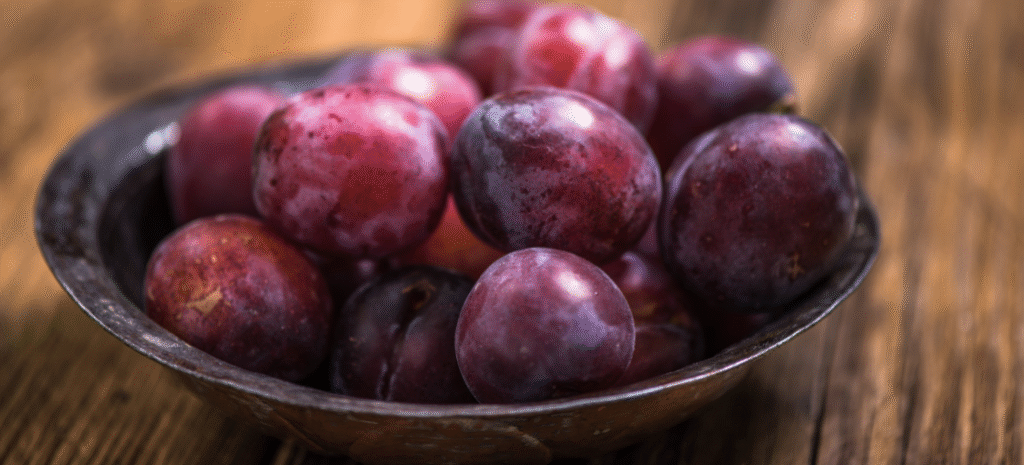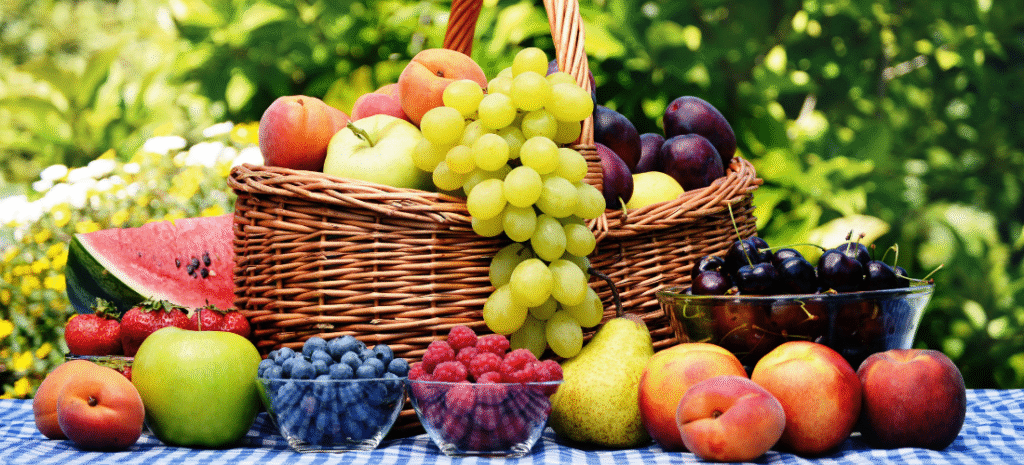Persimmons color autumn days orange, pack health benefits and are characterized by surprising versatility in cooking.
A powerhouse of health-and color!
Typically orange in color-a telltale sign of the presence of beta-carotene- perisimmons are particularly rich in vitamin A, which is essential for:
- vision health
- the proper functioning of the immune system
- the protection of skin and mucous membranes
But that’s not all: these fruits also contain fisetin and catechins, bioactive compounds that scientific research is investigating for their potential protective actions on the cardiovascular system.
What do persimmons contain?
They are composed of more than
- Simple sugars, which make them energetic and naturally sweet
- fiber, particularly pectin
- A variety of micronutrients and antioxidant phytocompounds
Thus, they are ideal fruits to consume at times when more energy and protection from seasonal infections are needed.
PERSIMMONS AND COCOA PUDDING: NATURAL DESSERT IN 2 INGREDIENTS
One of the easiest and most surprising ways to enjoy this fruit? Persimmons and cocoa pudding is natural dessert, with no added sugar or thickeners, perfect for young and old alike.
How to prepare it:
- Take a well-ripened persimmons (with an almost creamy texture)
- Remove peel and seeds
- Blend the pulp with 1 level tablespoon of bitter cocoa
- Pour into a small cup and let stand in the refrigerator for at least 1 hour
The secret to the texture? The fruit’s natural pectin and tannins, which gel on contact with the water in the pulp. No need for gelatin or starches-the magic is all in the nature of the fruit!
NOT JUST DESSERTS: HOW TO USE PERSIMMONS IN COOKING
The soft, sugary flesh of persimmons makes it extremely versatile. In addition to classic spoon desserts, it can be used in many other ways:
Sweet version:
- Base for baking cakes
- Added to oatmeal, creams or smoothies
- Pair with dried fruits or spices for natural desserts.
Savory version:
- In autumn salads with arugula, fennel and walnuts
- Sliced on bruschetta or crostini, with cashew cream
- In sweet and sour sauces to accompany grilled vegetables or marinated tofu
- Pair with plant-based cheeses or dried fruit alternatives.
CURIOSITY: FROM LEAVES TO PEASANT TRADITION
Did you know that persimmons are native to China and boast a long use in traditional Chinese medicine? Not only the fruit, but also the infusion of the leaves seems to offer protective effects, according to recent scientific reviews.
What about in the Italian folk tradition?
Farmers once used persimmons seeds to “predict” winter weather: cutting them in half, they would observe the inner shape to see if the winter would be mild or harsh. A fascinating curiosity that combines nature, seasons and ancient knowledge.
CONCLUSIONS
Persimmons are true allies of autumn wellness: rich in nutrients, naturally sweet, versatile in cooking and with a long history of traditional use. A fruit to be rediscovered and enhanced, in its simplicity and natural power.
by dietitian Alessandra Zanini
SOURCES:
https://pubmed.ncbi.nlm.nih.gov/27047315/
https://pubmed.ncbi.nlm.nih.gov/25637828/
BDA – Food database for epidemiological studies



